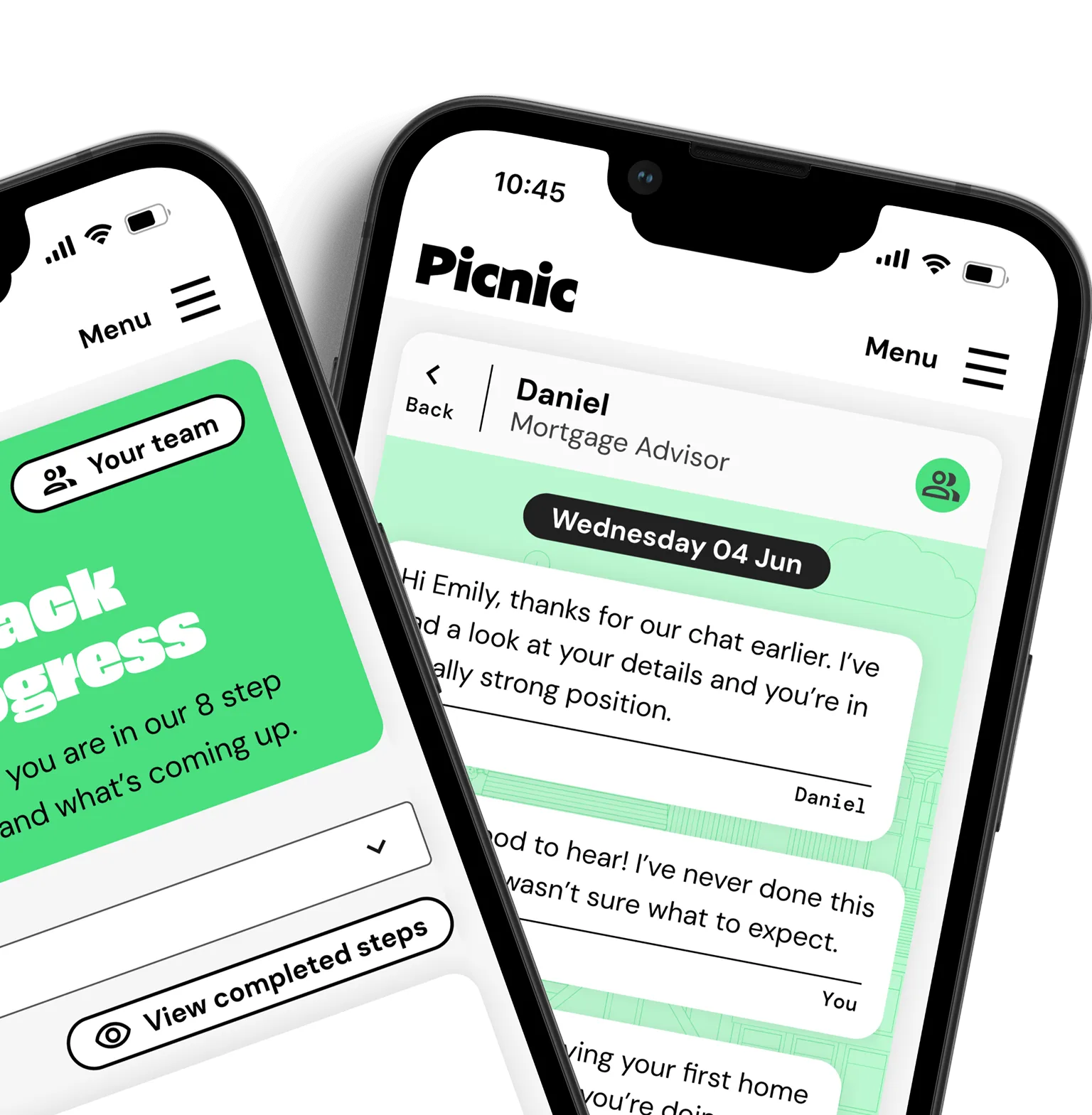Remortgaging
Guides
Remortgaging Explained
Our guides make it easier to understand how remortgaging works and why seeking advice could be the smartest way of securing the best rates.
5 mins
How Remortgaging Works

5 mins
Why You Should Use A Mortgage Broker

5 mins
Remortgaging To Release Equity

6 mins
Remortgaging For Home Improvements

6 mins
Debt Consolidation Mortgages

5 mins
Remortgaging To Buy Another Property

3 mins
Day 1 Remortgages

5 mins
How To Get a Remortgage With Bad Credit

4 mins
Unencumbered Mortgages

No More Guesswork
• A Decision in Principle direct from a lender
• An Eligibility check that won’t affect your credit score
Less Option Overload
• Compare 100+ lenders*
• A personalised shortlist of mortgage matches
No More Radio Silence
• Live tracker, real-time updates and messaging
• A dedicated team who keep you in the loop at every stage
Less Messy Paperwork
• Simple e-signing and document upload
• Everything in your own innovative portal

The Mortgage Experts Trusted by Experian
Picnic is Experian’s exclusive mortgage partner, trusted to make mortgages simple. With access to 100+ lenders and expert support, we’ll help you find the right fit without the stress.
Working With the Brands You Trust

Everything You Need, All in One Place
No back-and-forth emails. No printing. No guesswork.
📍Track your mortgage progress step-by-step
✍️ Sign and upload documents in seconds
💬 Message your advisor any time
✅ Stay organised and in control
Your mortgage, made simple — start to finish.
Frequently Asked Questions
Remortgaging 101
Straight answers to all the key remortgage questions. No jargon, just real guidance to help you secure the best possible outcome.
Remortgaging means moving your mortgage onto a new deal, typically with a different lender. It’s an opportunity to secure a more competitive interest rate, reduce your monthly repayments, release cash from your home, or change the terms of your mortgage to suit your current circumstances.
In reality, yes, you can. But the most common time to do it is when your existing mortgage deal is coming to an end. Switching to another deal means you avoid moving on to your lender’s Standard Variable Rate (SVR), which will likely be higher and mean your repayments will jump up.
You can still switch before the term of your existing mortgage deal ends, but this could mean paying an early repayment charge (ERC). If the ERC is higher than the savings you’ll make by moving on to another deal, it doesn’t make financial sense to go ahead.
A standard remortgage should take somewhere between 4 to 8 weeks to fully complete. If you're just moving from one deal to another with your existing mortgage lender (known as a Product Transfer), this can usually be done much sooner.
More complex remortgage applications, such as wanting to borrow more money (releasing equity), could take up to 8 weeks or possibly longer, depending on the work needed to complete everything.
The equity in your home - the difference between the property’s value and outstanding mortgage balance - is what mortgage lenders will look to use as a deposit for a remortgage.
So, for example, if your property’s worth £300,000 and your mortgage balance is £150,000, the equity available is £150,000. This would give you a current loan-to-value (LTV) of 50%, which would determine the type of remortgage deal you could qualify for. Lower LTVs mean lower interest rates, as there’s less risk involved for the lender.
Yes, it’s possible. This type of home loan is known as an unencumbered mortgage, rather than a remortgage, and is a smart way to release equity tied up in your property to fund home improvements, buy another property, or consolidate unsecured debts.
To find out more, read our guide on Unencumbered Mortgages.
Yes, you can! Many homeowners remortgage to release equity from their property to pay for renovations. If your home’s value has increased since you first took out your mortgage, or if you’ve paid off a chunk of it, you may be able to borrow more.
The main considerations will be whether you can afford the new repayments and if the planned improvements will add value to your home.
Yes, it’s possible. It really depends on the type of credit issue you’ve had, the amounts involved and how long since it happened.
Your choice of mortgage lender can also have a big impact. A specialist lender - one who considers applications on a case-by-case basis - will tend to look more favourably on remortgage applicants with lower credit scores.
To find out more, read our guide: How to Remortgage With Bad Credit.
